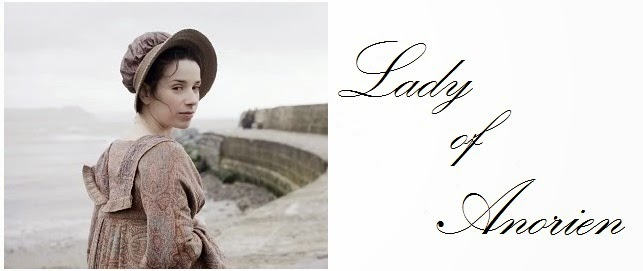Chapter 12! We’re halfway! And what a full and action packed chapter it is…
There’s also the farther wonderful illumination of Wentworth’s character in Harville’s brief talk with Anne about Benwick after Fanny Harville’s death: “Nobody could do it, but that good fellow” (pointing to Captain Wentworth). “The Laconia had come into Plymouth the week before; no danger of her being sent to sea again. He stood his chance for the rest; wrote up for leave of absence, but without waiting the return, travelled night and day till he got to Portsmouth, rowed off to the Grappler that instant, and never left the poor fellow for a week. That's what he did, and nobody else could have saved poor James. You may think, Miss Elliot, whether he is dear to us!” So understated…yet so amazing in its deep portrayal of true friendship!
Finally we come to the tragic accident where Anne shines out brilliantly: keeping her head—directing everything at once—talking—speaking—taking decisive action! (And the attentive Wentworth is starting to notice…)
Favorite lines/quotes:
“She (Anne) said all that was reasonable and proper on the business; felt the claims of Dr Shirley to repose as she ought; saw how very desirable it was that he should have some active, respectable young man, as a resident curate, and was even courteous enough to hint at the advantage of such resident curate's being married.” pg. 103
“…having all kindly watched him (Mr. Elliot) as far up the hill as they could, they returned to the breakfast table.” pg 105
“Anne found Captain Benwick getting near her, as soon as they were all fairly in the street. Their conversation the preceding evening did not disincline him to seek her again; and they walked together some time, talking as before of Mr. Scott and Lord Byron, and still as unable as before, and as unable as any other two readers, to think exactly alike of the merits of either…” pg 107
“Anne, attending with all the strength and zeal, and thought, which instinct supplied, to Henrietta, still tried, at intervals, to suggest comfort to the others, tried to quiet Mary, to animate Charles, to assuage the feelings of Captain Wentworth. Both seemed to look to her for directions.” pg 110
“The tone, the look, with which "Thank God!" was uttered by Captain Wentworth, Anne was sure could never be forgotten by her; nor the sight of him afterwards, as he sat near a table, leaning over it with folded arms and face concealed, as if overpowered by the various feelings of his soul, and trying by prayer and reflection to calm them.” pg. 112
“Anne wondered whether it ever occurred to him now, to question the justness of his own previous opinion as to the universal felicity and advantage of firmness of character; and whether it might not strike him that, like all other qualities of the mind, it should have its proportions and limits. She thought it could scarcely escape him to feel that a persuadable temper might sometimes be as much in favour of happiness as a very resolute character.” pg. 116
“…the remembrance of the appeal remained a pleasure to her, as a proof of friendship, and of deference for her judgment, a great pleasure; and when it became a sort of parting proof, its value did not lessen.” pg. 117
Possible discussion question/s:
~Where does firmness end and stubbornness begin?















.jpg)



























